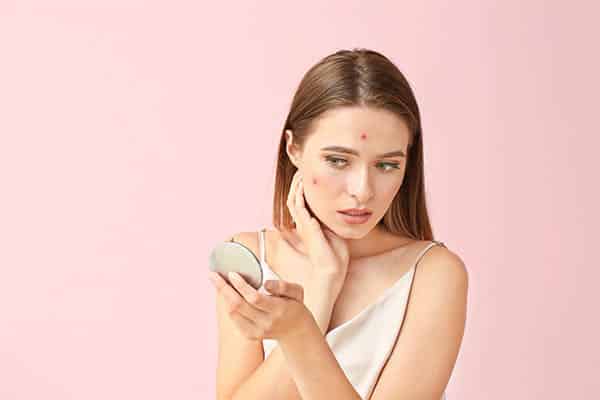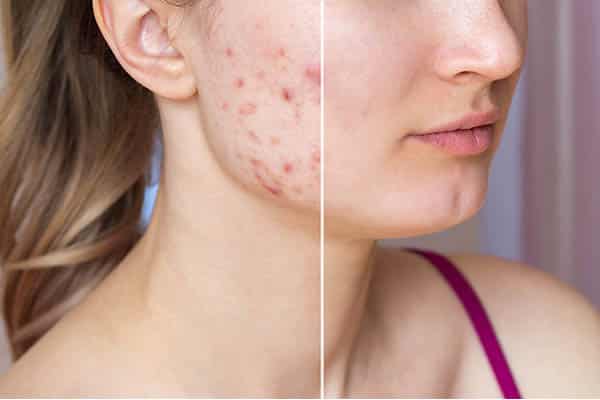Remove Acne from Darker Skin Tone:- The phrase “skin of color” encompasses people of African, Asian, Latino, Mediterranean Middle Eastern and Native American descent who share various skin tones and complexions.
People of darker complexion tend to struggle with various skin-care issues, with acne and its related black patches often topping this list of concerns.
Understanding what works when treating darker skin types is the key to cleaner skin, according to research. Here are a few techniques proven effective.
GET RID OF ACNE IN DARKER SKIN TONES
1. Treat the acne as well as the dark patches.
Many individuals seek professional guidance when seeking to eliminate dark spots, which often last much longer than acne. Treating acne effectively is also critical; getting rid of its source will eliminate your dark spots as well.

2. Ensure you eradicate acne quickly to avoid dark spots and scar
Studies indicate that treating acne early can prevent its worsening. If moderate-severe acne develops before therapy is initiated, persons of color are at an increased risk.
- Darker skin spots and patches
- Keloids are elevated scars.
3. Use acne products that are effective for skin of color.
Not every acne treatment works equally well on skin of color. Dermatologists advise using products containing one or more of the following substances when looking to treat minor acne: A combination of retinoid and benzoyl peroxide works effectively for treating minor acne; additionally, using retinoids prevent fresh breakouts by keeping sebaceous glands healthy and clear.
4. Make some alterations if you simply have acne on your brow and temples.
If your acne only appears in certain spots, hair oil could be to blame. In fact, this phenomenon has its own name – pomade acne.
Small changes may help clear away acne. Dermatologists offer various acne treatments as possible solutions. For example:
Switch over to hair products containing water or glycerin instead of oil for optimal results.
5. Make use of non-clogging skin care products.
Skin-care products such as hair oil could be contributing to breakouts. Applying oil-containing products directly to your face, back, or chest could clog your pores – leading to acne breakouts.
In order to avoid products that cause acne-causing skin care products, only use those labeled as non-comedogenic or “won’t clog pores.”

6. Avoid applying thick, greasy makeup to conceal dark spots.
Women may use concealers to quickly conceal imperfections; however, many are often unaware that this method actually causes new blemishes to form.
Makeup can be worn safely if it meets certain standards such as mineral cosmetics or makeup labeled “non-comedogenic.” Mineral makeup can effectively cover dark patches.
7. Take care of your skin.
Do you attempt to clean your face in order to clear up acne blemishes? Though it might be difficult, these items actually exacerbate acne rather than help resolve it.
8. Caps and headgear should be washed on a regular basis.
Wearing any form of headgear without first cleaning (or dry cleaning), perspiration, dirt, and oil build-up quickly – which may exacerbate acne breakouts.
9. Before attempting to treat your acne with a chemical peel, microdermabrasion, or laser therapy, consult a physician.
Even home versions of acne treatments could result in dark stains and bright spots if your skin has darker pigmentation.
However, in the right hands these therapies may prove successful at curing acne in people of color.
If you are considering any of these treatments, it is best to speak to a dermatologist or other skin-care expert first. Dermatologists use this practice regularly.
10. Consult a dermatologist.
Dermatologists can often help treat acne and dark spots effectively with prescription-only medication or tailor-made therapy plans tailored specifically to each person. A dermatologist can assess your skin and develop an individualized treatment plan tailored just for you.
Also Refer:- prevent a Maskne Breakout

